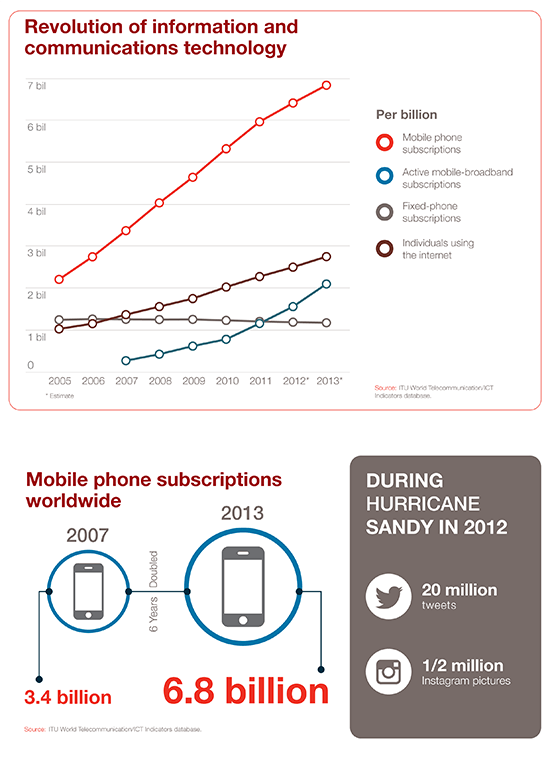
It’s clear that mobile technology is leading the way around the world, far outpacing Internet access and landlines. Consider that there are nearly as many mobile subscriptions around the world as there are people, as illustrated in this infographic. What does this mean for the humanitarian sector and for responders in times of disaster?
The 2013 World Disasters Report, released by the IFRC last week, offers some great examples of the innovative use of mobile technology, putting access to information and data in the hands of those who need it and eliminating steps and barriers to save time when help cannot wait.
When responding to a humanitarian crisis, organizations such as the Red Cross require up-to-date information to accurately assess needs and provide assistance in the most effective way, as quickly as possible. Surveys would traditionally be done by hand, with data entered into the computer and then analyzed. All of this is time consuming; meanwhile technology available to speed up this process.
In 2011, the IFRC launched the Rapid Mobile Phone-based Surveys (RAMP) system which was piloted Kenya, Namibia and Nigeria as part of their malaria prevention programs.
RAMP can be used to carry out any type of field survey or assessment with the use of mobile technology. The data that is collected on the mobile phone can be uploaded to a website when a 2G connection becomes available. The near real-time analysis of data offers many other advantages, including detecting trends and changes, and monitoring needs remotely. In the health sector, for example, this mobile tool can be used to get an accurate picture of infection rates and this information can be shared among different agencies and government who can respond quickly, as needed.
The pilot program showed that the RAMP system is easy to use and it will be rolled out globally by IFRC.